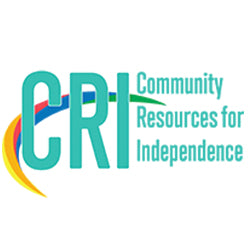We have previously discussed how sleep impacts our daily lives. A night of good sleep helps us to have a good mood, gives us full energy, and a healthy body.
Getting the right amount of sleep could be difficult for some. A year of limited outdoor activities, the stress and paranoia of staying at home has added difficulties in getting the good sleep we always wanted.
We have gathered tips that you can try to achieve a good night’s sleep!
1. Stick to a schedule
Consistency is the key. Wake up and go to bed at the same time, even during the weekend or a vacation! Try to limit the difference of your sleeping schedule to an hour.
2. Minimize long Naps
If you didn't sleep well, you might benefit from a nap as it helps you recharge the energy you lack. However, long naps can cause confusion and mess up your body clock.
Limit your naps to 30 minutes or less and don't nap at the end of the day.
3. Put away distractions
Remove any distractions from the room. It's easy to get occupied by work or electronics when they are close by. Keep anything work-related out of your bedroom and leave your phone in a different room if possible. They distract you from your ultimate goal: going to bed on time.
4. Avoid eating and drinking before you sleep
Don't eat anything in the 3 hours before bedtime. This way your body gets the time to digest the food and you avoid things like heartburn. If you can’t fall asleep on an empty stomach, be sure to only eat something light.
Drinking water is fine but be careful with caffeine, alcohol, sugary drinks, and your nicotine intake. These might keep you awake at night and disrupt your sleep.
5. Be active during the day!
It is best to add exercise to your routine. Regular physical activities can promote better sleep, but avoid being too active close to bedtime. No need to become a gym-rat. A daily walk helps as well.
6. Have an Ideal bedroom
Your bedroom should be your rest sanctuary. Make your room a place that is ideal for sleeping. Keep it cool, comfortable, and as most importantly: keep it dark.
Did you know our brain associates places with actions? So like, if you chill in your bed with your phone during the day, your brain might start associating laying in bed with being awake. It's best to be in different places for working, chilling, and resting. Look on your phone while on the couch, eat food at the dining table, and sleep/nap in your bed.
7. Lessen your exposure to light
Blue light is a portion of the visible light spectrum that can have unique effects on alertness, hormone production, and sleep cycles. Many of our electronic devices, LED, and fluorescent lights emit this but the biggest source of blue light is the sun.
Learn how to dim your lights, and avoid using electronic devices 30 minutes before your bedtime. This should help signal your body that it is now time for rest and will help you achieve your good night sleep.
------
These tips can possibly improve your sleeping habits. I've tried these tips during the first COVID-wave when I was struggling to get enough rest. I can tell you: they worked wonders for my sleep. Especially keeping my phone out of my bedroom brought back my nights of long and uninterrupted sleep.
If your sleeping issues are persistent, we recommend you schedule an appointment with your doctor to get personal advice.
Sometimes we forget the importance of sleep. It's always good to remind yourself once in a while and to realize that it is a vital process that we should not skip nor take for granted. It greatly affects every aspect of our well-being.
You do not have to try out all these tips at once. Do one or two that seem most helpful, and maybe you will see an improvement.
Let us know if these tricks worked for you!










![iProven DMT-77 No-Touch Forehead Thermometer for Adults, Kids, Babies [Superior Accuracy, Upgraded Fever Alarm, Quiet Vibration Alerts] Digital Infrared Baby Thermometer with Ear Mode, Hypothermia Alarm](http://iproven.com/cdn/shop/files/AMI_DMT-77_image1_V3.3_MP_1_214x.jpg?v=1690531003)










